Empowering Change: How Grant Writing Certification Transforms Nonprofits and Communities
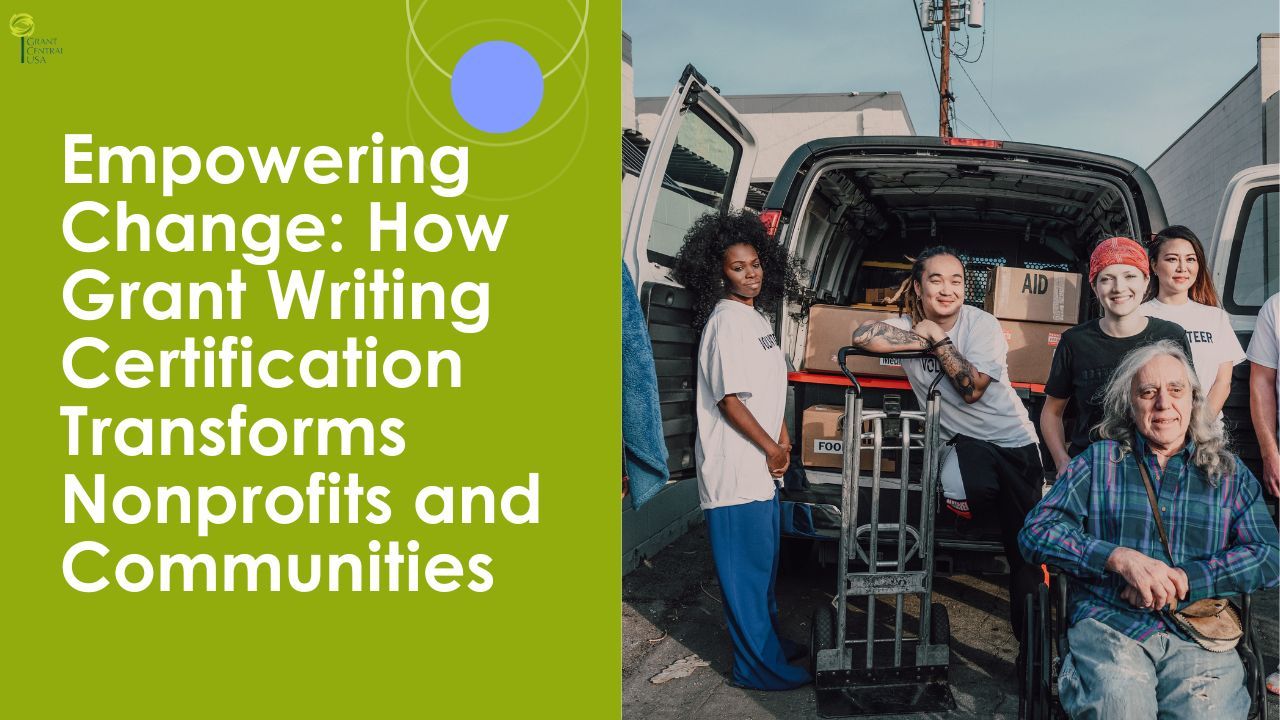
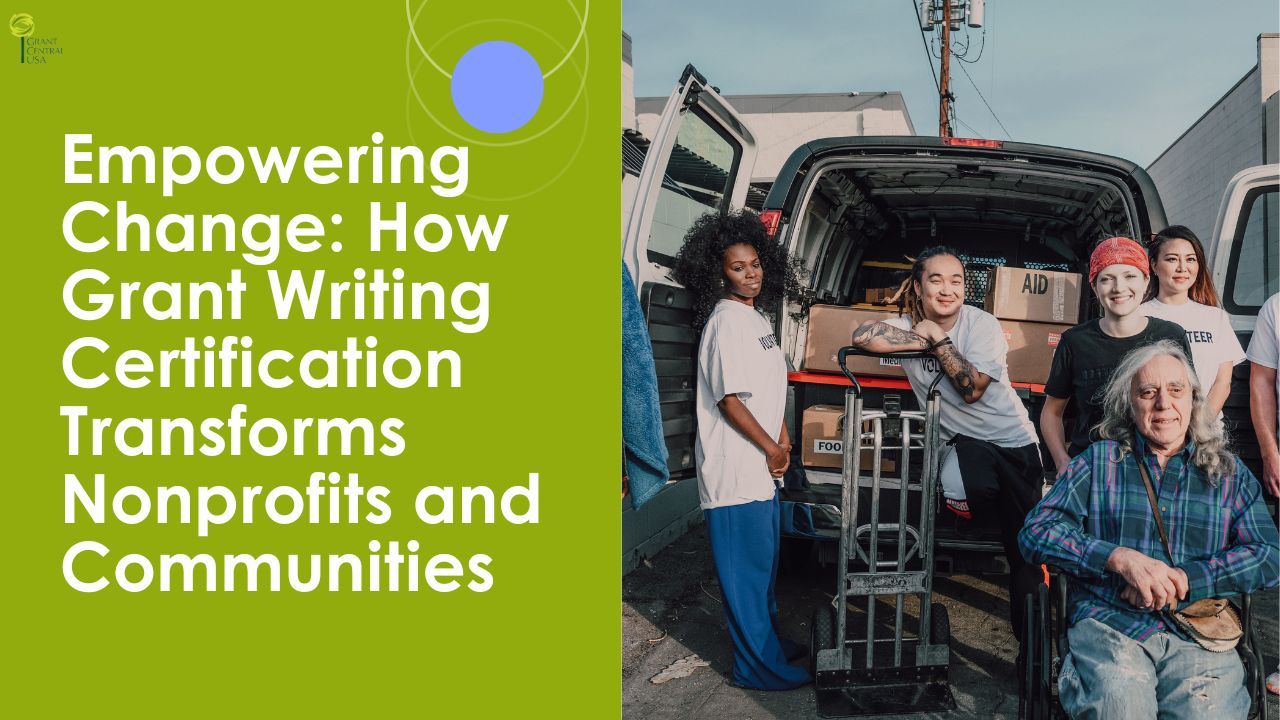
In the dynamic world of nonprofit organizations, securing the necessary funds to fuel impactful initiatives is an ever-present challenge. It's a challenge that can often make the difference between realizing a vision for positive change or falling short of one organization's goals. That's where the power of grant writing certification comes into play. In this blog, we'll embark on a journey to explore how the acquisition of a grant writing certification can become a catalyst for transformation, not only within nonprofit organizations but also within the very communities they serve. Prepare to discover the remarkable ways in which this specialized expertise empowers change agents to further write grants for a brighter future for all.
Why is grant writing crucial for nonprofit organizations' sustainability and growth?
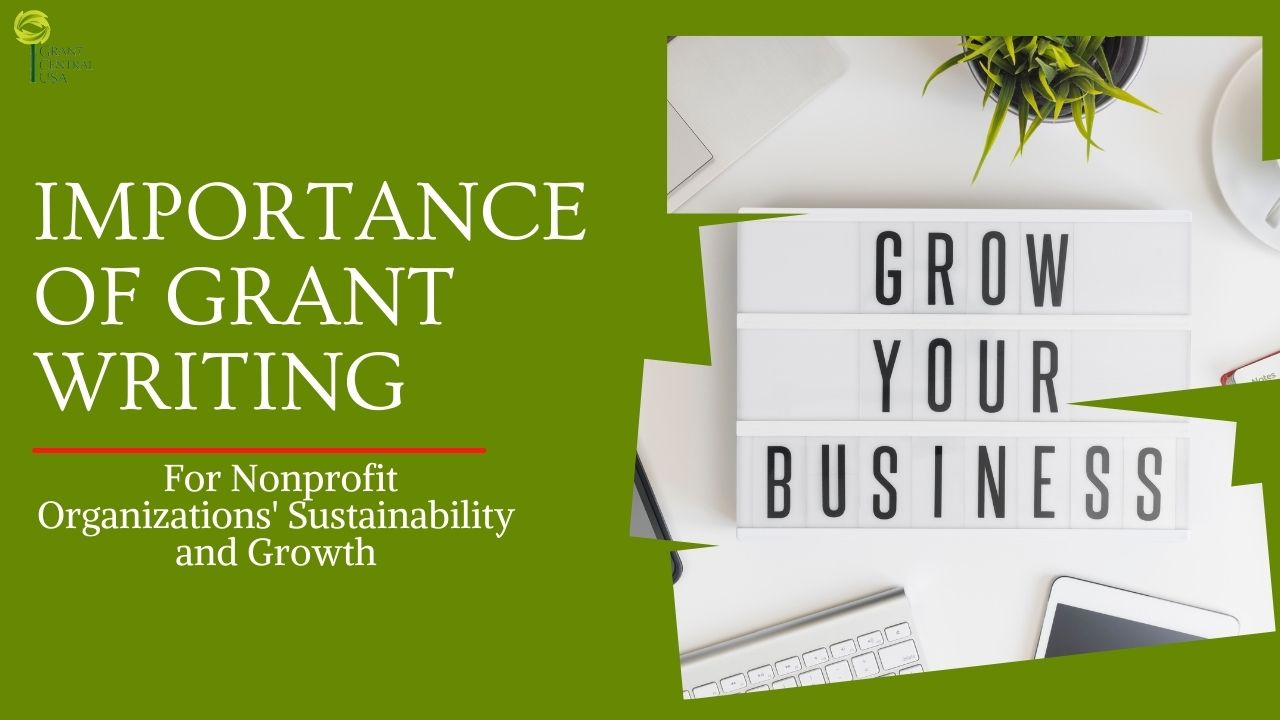
Grant writing is indispensable for the sustainability and growth of nonprofit organizations. Here's a fast paced concise breakdown of grant funding and its critical role:
1. Access to Funding
Nonprofits rely heavily on external funding to carry out their missions. Grant proposals, whether to government bodies, private foundations, or corporations, provide a vital avenue for securing these funds.
2. Diverse Funding Sources
Grant writing opens doors to a wide range of funding sources, from both federal grants and state grants to private state and foundation proposals and grants. This diversification reduces dependence on a single funding stream, mitigating financial risks.
3. Professional Expertise
Professional, experienced grant writers and proposal writers possess the skills and experience to craft compelling proposals. They know how to navigate the intricacies of grant applications, increasing the likelihood of success.
4. Efficiency and Effectiveness
Certified grant writers bring a level of professionalism and precision to the grant proposal writing process. Their expertise ensures that they write grant proposals that are well-structured, persuasive, and aligned with the funder's priorities.
5. Competitive Advantage
In a competitive grant landscape, organizations with certified grant writers are better positioned to make federal proposals and secure funding. Certification serves as a mark of credibility and expertise.
6. Funding for Impact
Successful grant applications translate to funds that can be channeled directly into programs and projects, enabling nonprofits to expand their reach and create a more significant impact within their communities.
In summary, grant writing is the lifeblood of nonprofit sustainability and growth. It enables organizations to tap into diverse funding sources, access professional expertise, and compete effectively for crucial financial support, ultimately empowering them to make a lasting difference in their communities.
What are the key components of a reputable grant writing certification program, and how do they prepare individuals for success?
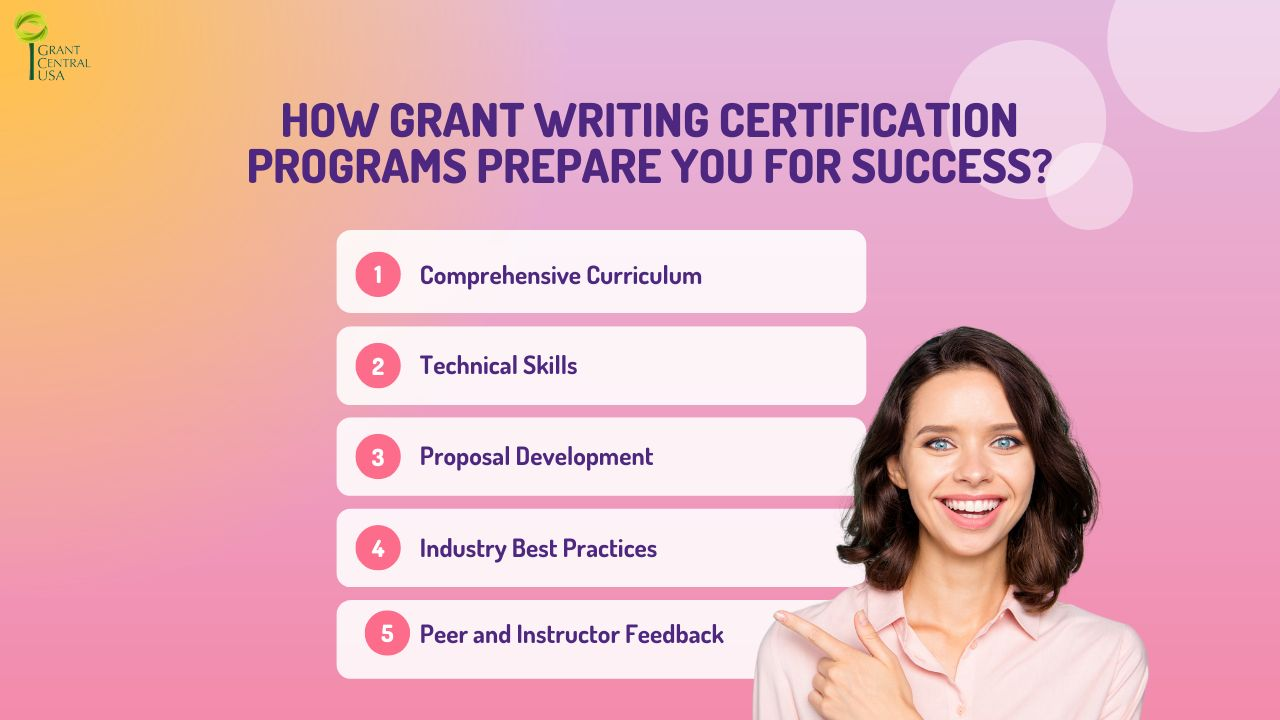
A reputable grant writing certification program encompasses several various online courses, with key components designed to equip individuals with the knowledge and skills necessary to excel in writing effective grant proposals. These programs typically cover the following essential elements:
1. Comprehensive Curriculum
A robust certificate in grant writing program offers students a comprehensive curriculum that delves into the intricacies of grant writing. Participants learn about proposal development, research techniques, and writing grants and the various types of grants, including federal, state, foundation, and corporate grants.
2. Technical Skills
Successful grant writers require technical skills, and certification programs provide hands-on training professional grant writers in areas such as budgeting, data collection, and project evaluation. These skills are crucial for successful grant proposals and crafting persuasive grant proposals that align with funders' requirements.
3. Proposal Development
A central focus and first course of grant writing certification is the art of proposal development. Participants learn how to structure and write proposals well, write compelling narratives, and create budgets that effectively communicate an organization's mission, goals, and intended impact.
4. Industry Best Practices
Reputable programs emphasize industry best practices advanced grant development. They keep participants up-to-date with the latest trends, guidelines, and ethical considerations in the field of grant writing.
5. Peer and Instructor Feedback
Certification programs often incorporate peer review and instructor feedback during grant development, allowing participants to refine their grant writing skills through constructive criticism and collaboration.
In summary, a reputable grant writing certification program provides a well-rounded education that equips individuals with the technical skills and knowledge necessary to excel in the field. By using course material covering proposal development, technical skills, industry best practices, and of course offering practical experience, these programs prepare individuals to write effective grant proposals that secure vital funding for nonprofit organizations and community initiatives.
How does grant writing certification empower individuals to secure funding from diverse sources, including government grants, foundations, and corporate donors?
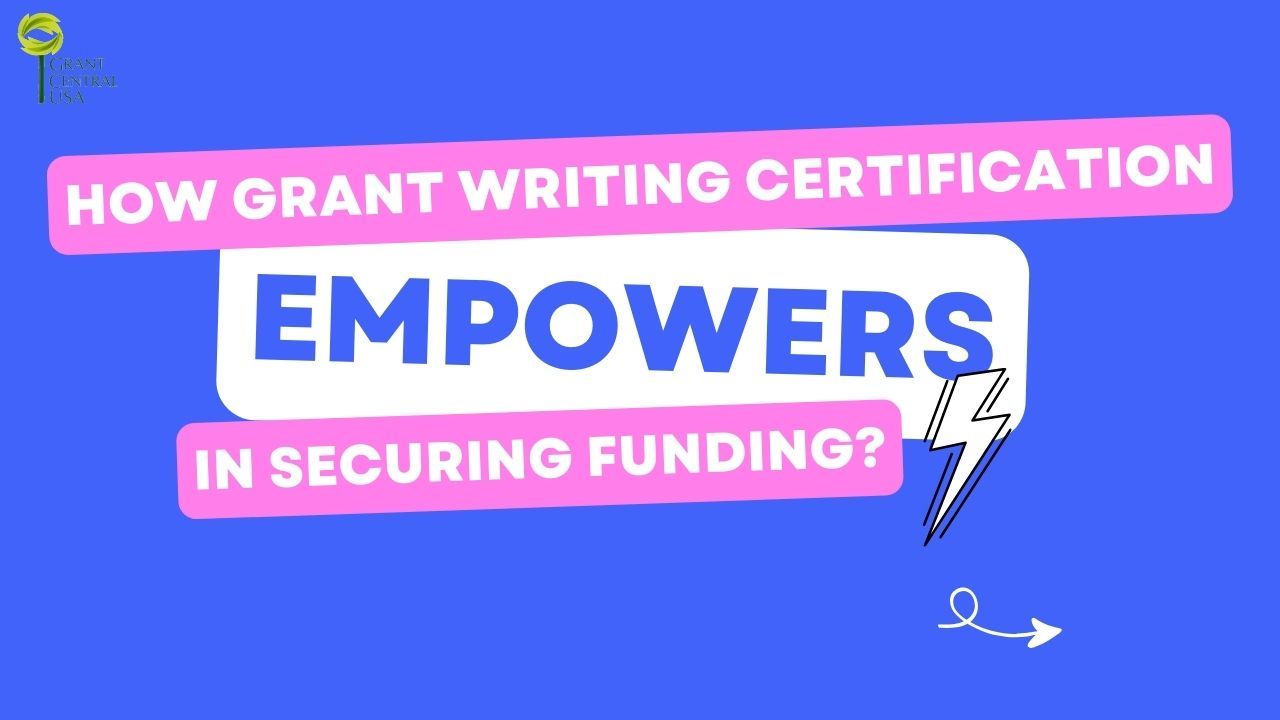
Grant writing certification empowers individuals with the knowledge, skills, and credibility needed to effectively secure funding from diverse sources, including government grants, foundations, and corporate donors. These certification programs provide comprehensive training on the intricacies of the grant-seeking process, which is invaluable when navigating the unique requirements and expectations of different funders. Certification instills confidence in grant writers, making them better equipped to approach potential donors and present persuasive grant proposals. Additionally, it offers insights into the latest trends and best practices in the field of grant writing certifications, ensuring that individuals stay up-to-date with changes in funding regulations and application processes. With certification, individuals are better positioned to build a network of connections in the philanthropic sector, access valuable resources, and demonstrate their commitment to professionalism. Ultimately, grant writing certification serves as a powerful tool for individuals seeking funding from various sources, enhancing their ability to secure financial support for critical projects and initiatives.
In what ways does a certified grant writer contribute to a nonprofit's ability to articulate its mission and impact effectively?
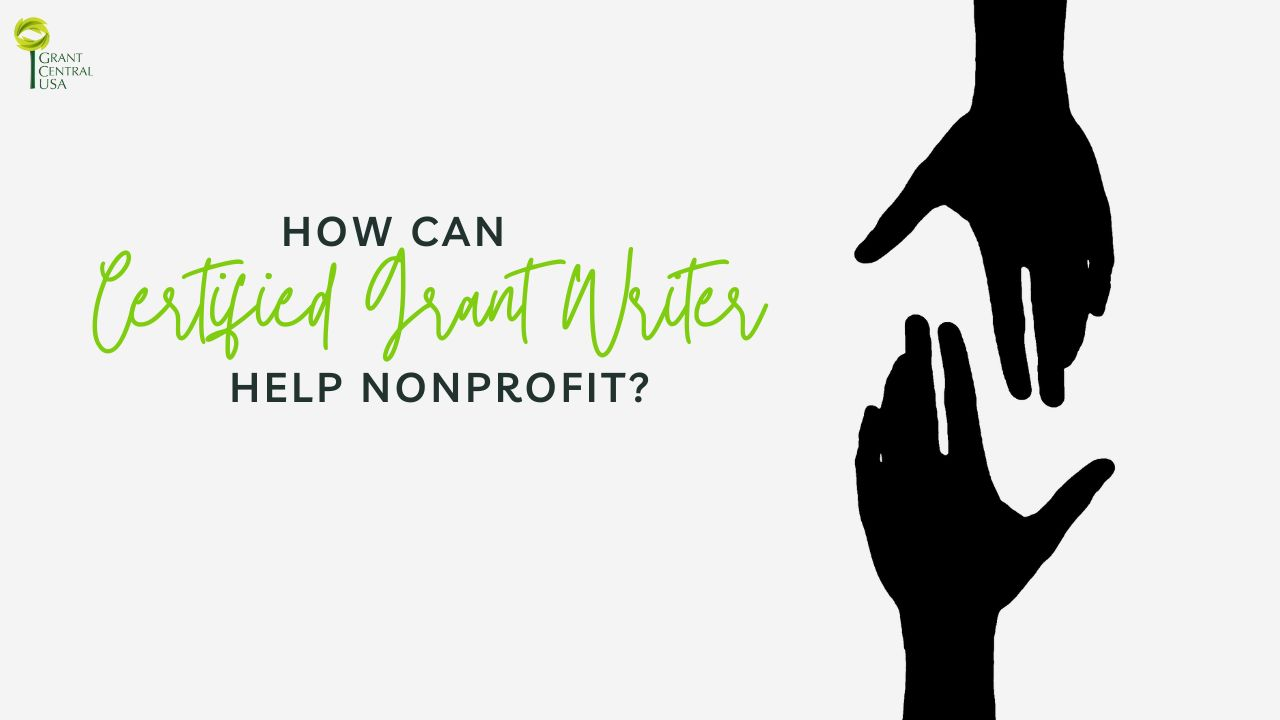
A certified grant writer contributes significantly to a nonprofit's ability to articulate its mission and impact effectively through several key avenues:
1. Professionalism
Certified grant writers bring a high level of knowledge specialist professionalism to the process of mission articulation. They employ best practices in writing, formatting, and presenting the nonprofit's goals and impact, ensuring that the organization's messaging is polished and compelling.
2. Clarity
They excel at conveying complex ideas in a clear and concise manner. Certified grant writers help nonprofits present their mission and impact statements in a way that is easily understandable to diverse audiences, including potential funders and the general public.
3. Alignment with Funders
Certified grant writers tailor their messaging drafting proposals to align with the priorities and interests of potential funders. They ensure that the nonprofit's mission and impact resonate with the specific goals and focus areas of prospective donors, increasing the likelihood of securing funding.
4. Data Integration
These professionals integrate data, statistics, and evidence into their proposals to substantiate the nonprofit's claims about its mission and impact. This data-driven approach enhances the credibility of the organization's message.
5. Storytelling
Certified grant writers use storytelling techniques to make the nonprofit's mission and impact relatable and memorable. They freelance writers create narratives that engage readers emotionally, making a stronger connection with the audience.
6. Consistency
They ensure consistency in messaging across different grant applications, fundraising materials, and public communications. This consistency reinforces the nonprofit's mission and impact message, strengthening the organization's brand.
7. Feedback Incorporation
Certified grant writers can analyze feedback from funders and incorporate it into the organization's messaging. This continuous improvement process helps the nonprofit refine how it articulates its mission and impact over time.
Overall, certified grant writers enhance a nonprofit's ability to communicate its mission and impact effectively by bringing professionalism, clarity, alignment with funders, data integration, storytelling, and an ongoing commitment to improvement. These contributions not only lead to successful grant applications but also support the nonprofit's broader efforts to engage with stakeholders and create a lasting positive impact in its community.
What role does ethical grant writing play in the certification process, and how does it influence the reputation and trustworthiness of nonprofits?
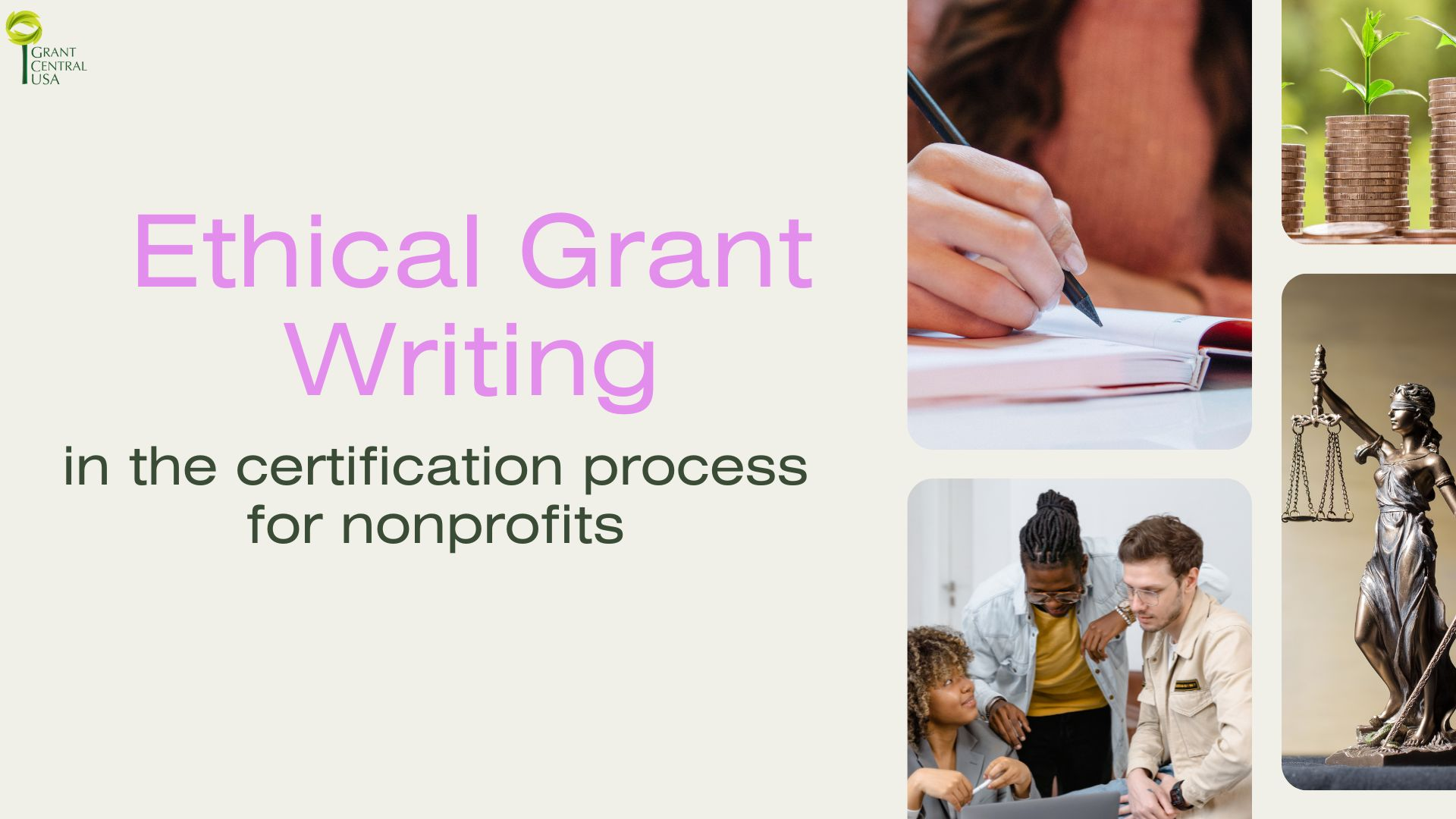
Ethical grant writing plays a pivotal role in the certification process for nonprofits, and it significantly influences their reputation and trustworthiness in several ways.
Firstly, ethical grant writing is essential for maintaining the integrity of the certification process itself. Grantmakers, whether government agencies, foundations, or private donors, rely on accurate and truthful information when evaluating grant applications. Ethical grant writing ensures that the information provided is honest successfully complete, and transparent, preventing any misrepresentation or exaggeration of the nonprofit's activities, achievements, or financial status. When grantmakers have confidence in the integrity of the grant application process, they are more likely to support and fund the nonprofit's initiatives.
Secondly, ethical grant writing is a reflection of the nonprofit's commitment to responsible and accountable practices. Grantmakers often scrutinize not only the project or program being proposed but also the organization's overall governance, financial management, and ethical standards. Nonprofits that engage in ethical grant writing demonstrate their dedication to these principles, which can enhance their reputation as trustworthy and responsible organizations. This, in turn, can lead to more substantial and sustained support from grantmakers and donors.
Furthermore, ethical grant writing contributes to the nonprofit sector's overall credibility. When nonprofits consistently adhere to ethical standards in their grant applications and reporting, they help build a positive reputation for the entire sector. Conversely, unethical practices, such as misrepresenting facts or misusing grant funds, can erode trust not only in individual organizations but also in the nonprofit sector as a whole.
In summary, ethical grant writing is not just a matter of compliance; it is a cornerstone of a nonprofit organization's reputation and trustworthiness. It ensures that the certification process is fair and accurate, reflects the nonprofit's commitment to responsible practices, and contributes to the credibility of the nonprofit sector. By prioritizing ethical grant writing, nonprofits can strengthen their relationships with grantmakers, donors, and the communities they serve, ultimately furthering their mission and impact.
How does the knowledge gained through grant writing certification extend beyond the grant application process to benefit nonprofits and their communities in the long term?

The knowledge acquired through grant writing certification extends far beyond the grant application process, offering enduring benefits to nonprofits and the communities they serve. Certified grant writers bring to the table a deep understanding of effective fundraising and strategic planning, which goes a long way in ensuring the sustainability of nonprofit organizations. By streamlining grant-seeking efforts and securing ongoing funding, they allow nonprofits to allocate more re
sources to their core mission. Additionally, the skills learned in grant management and writing often encompass program development and evaluation, enabling nonprofits to design more impactful initiatives and measure their long-term effects accurately. Beyond the immediate grant-related tasks, certification fosters stronger donor relations, community engagement, and advocacy capabilities, all of which contribute to lasting positive changes in the communities nonprofits serve. Ultimately, the knowledge gained through grant writing certification is an invaluable asset that empowers nonprofits to thrive and make enduring contributions to their communities.
What strategies and best practices do certified grant writers bring to the table that can maximize grant success rates for nonprofits?
Certified grant writers bring a wealth of strategies and best practices to the table, significantly increasing grant success rates for nonprofits. First and foremost, they possess a deep understanding of the grant landscape, enabling them to pinpoint opportunities that align closely with the nonprofit's mission and goals. They are skilled in crafting compelling narratives that not only convey the organization's impact but also resonate with the priorities and values of potential funders. Certified grant writers excel in tailoring proposals to meet specific grant requirements and ensuring strict adherence to deadlines and submission guidelines, reducing the risk of application rejections. Moreover, they incorporate data-driven approaches, leveraging statistics, case studies, and testimonials to substantiate their proposals. By bringing professionalism, expertise, and meticulous attention to detail to the grant-seeking process, certified grant writers maximize the likelihood of securing critical funding for nonprofits, allowing them to advance their missions and better serve their communities.






